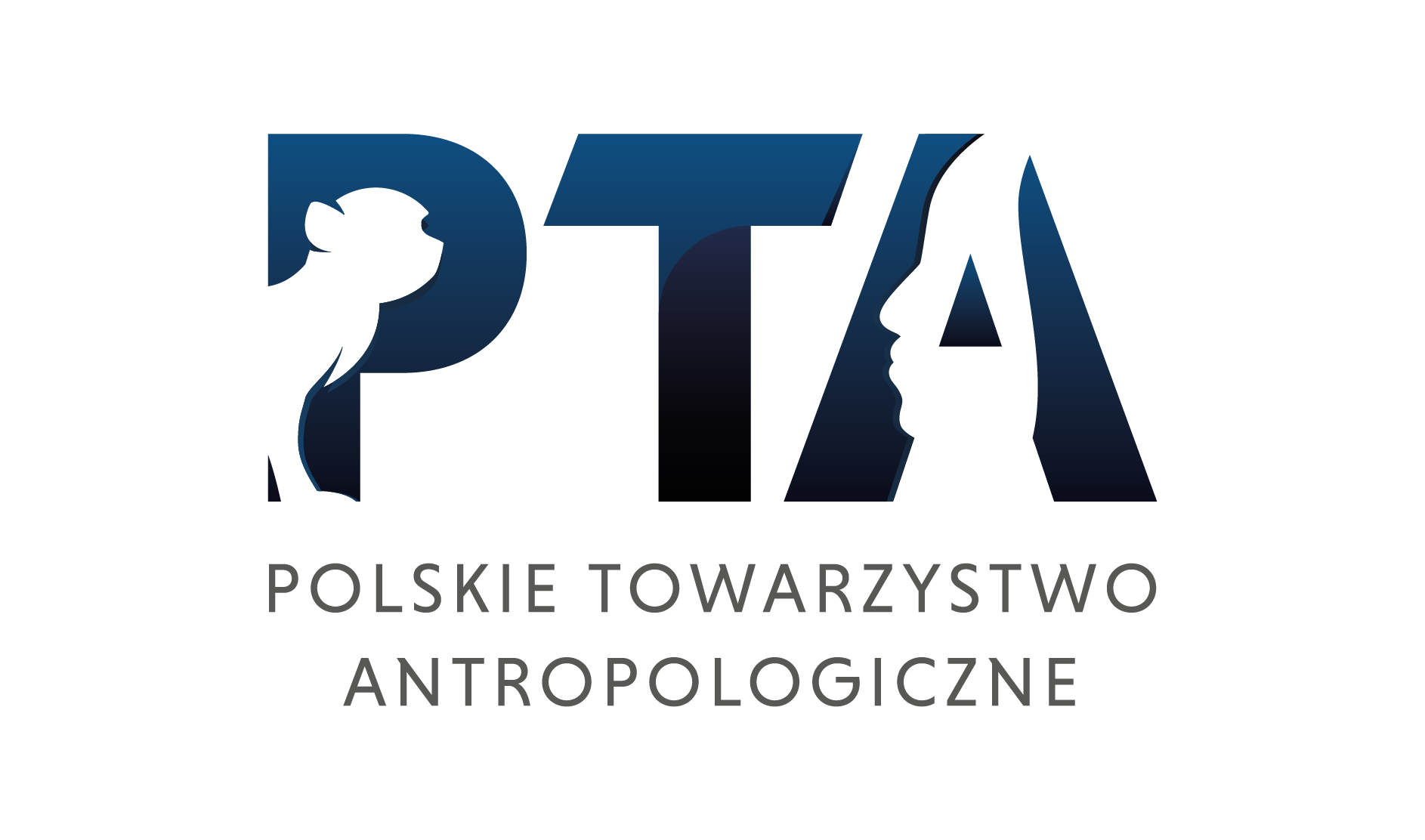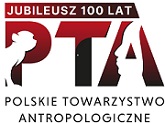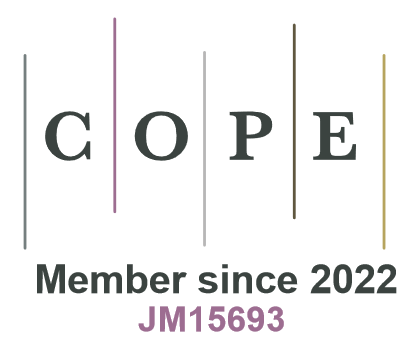When maize is not the first choice: advances in paleodietary studies in the Archaeological Site Río Doncellas (Jujuy, Argentina)
DOI:
https://doi.org/10.1515/anre-2016-0020Keywords:
δ13C, δ15N, Solanum tuberosum, Zea mays, Camelidae, aridityAbstract
In this work we present new values of stable isotopes of carbon (δ13Cco and δ13Cap) and nitrogen (δ15N) measured in a sample of 13 human individuals found in the Río Doncellas Archaeological Site (Late Period or Regional Developments, ca. 1000 AD-1450 AD) located in the Puna of Jujuy, Northwest of Argentina. The skeletal series belong to the collection of Museo E. Casanova, FFyL – UBA and the Instituto Nacional de Antropología y Pensamiento Latinoamericano, being the result of investigations carried out during the decades of 1940 and 1970, respectively. In addition, in this work we present isotopic compositions of food resources (vegetal and fauna) found in the archaeological record as well as gathered in modern farms located in the study area (Abra Pampa, Cochinoca, Jujuy). This information was used for paleodietary inference, allowing us to establish a hierarchy of the resources that were consumed. The results indicate that maize (Zea mays) is less important than other vegetal resources in the diet, which contradicts the expectations generated from the macrobotanical evidence of the site and the cultivated terraces that surround it. On the other hand, camelids seemed to be widely exploited, which is coherent with the current importance of meat production within the region. These results allow us to assert that the growth of cereals did not have a progressive relevance over other resources.
Downloads
References
Albeck ME. 2001. La Puna Argentina en los Períodos medio y tardío. In: E.E. Ber berián, A.E. Nielsen, editors Historia argentina prehispánica, 1. Córdoba: Editorial Brujas. 347-388.
View in Google Scholar
Albeck ME, Ruiz MS. 2003. El tardío en la puna de Jujuy: poblados, etnias y territorios. Cuadernos 20:199-221.
View in Google Scholar
Albeck ME, Zaburlín MA. 1996. Análisis faunístico del recinto R-1 de Pueblo Viejo de Tucute. En: Zooarqueología de camélidos 2.
View in Google Scholar
Alfaro de Lanzone LC. 1988. Investigación Arqueológica en la Cuenca del río Doncellas. Dpto. Cochinoca, Jujuy. Reconstrucción de una cultura olvidada en la Puna Jujeña. Imprenta del Estado de la Pcia. de Jujuy.
View in Google Scholar
Bianchi AR, Yánez CE, Acuña LR. 2005. Base de datos mensuales de precipitaciones del Noroeste Argentino. Instituto Nacional de tecnología Agropecuaria. Proyecto Riesgo Agropecuario, Convenio Específico, (3), 41.
View in Google Scholar
Bocherens H, Drucker D. 2003. Trophic level isotopic enrichment of carbon and nitrogen in bone collagen: case studies from recent and ancient terrestrial ecosystems. Int J Osteoarchaeol 13 (1-2):46-53.
View in Google Scholar
Bogaard A, Heaton THE, Poulton P, Merbach I. 2007.The impact of manuring on nitrogen isotope ratios in cereals: archaeological implications for reconstruction of diet and crop management practices. J Archaeol Sci, 34, 3:335-343.
View in Google Scholar
Cadwallader L, Beresford-Jones DG, Whaley OQ, O’Connell TC. 2012. The signs of maize? A reconsideration of what δ13C values say about palaeodiet in the Andean region. Hum Ecol 40:487-509.
View in Google Scholar
Coplen TB, Krouse HR, Bohlke JK. 1992. Reporting of nitrogen-isotope abundances. Pure Appl Chem 64:907-908.
View in Google Scholar
Coplen TB, Brand WA, Gehre M, Gröning M, Meijer HAJ, Toman B, Verkouteren RM. 2006. New guidelines for δ13C measurements. Anal Chem 78:2439-2441.
View in Google Scholar
Craig H. 1957. Isotopic standards for carbon and oxygen and correction factors for mass spectrometric analysis of carbon dioxide. Geochim Cosmochim Acta 12:133-137.
View in Google Scholar
Egaña S. 1999. El Registro Documental de la Necrópolis Prehispánica de Doncellas (Dto. de Cochinoca, Jujuy, Argentina): Exploración de su potencial para los estudios del comportamiento ante la muerte. Unpublished Thesis. Universidad Nacional de Rosario, Facultad de Humanidades y Artes, Escuela de Antropología. MS.
View in Google Scholar
Fernández J, Panarello HO. 1999-2001. Isótopos del carbono en la dieta de herbívoros y carnívoros de los andes jujeños. Xama 12-14:71-85.
View in Google Scholar
Fry, B. 2006. Stable isotope ecology. Springer Science & Business Media.
View in Google Scholar
Fuchs ML, Varela HH. 2013. Fechados radiocarbónicos de colecciones osteológicas de la puna de Jujuy, Argentina. Relaciones de la Sociedad Argentina de Antropología, 38.
View in Google Scholar
Garvie-Lok SJ, Varney TL, Katzenberg MA. 2004. Preparation of bone carbonate for stable isotope analysis: the effects of treatment time and acid concentration. Journal of Archaeological Science, 31(6), 763-776.
View in Google Scholar
Hartman G. 2011. Are elevated δ15N values in herbivores in hot and arid environments caused by diet or animal physiology? Functional Ecology 25(1):122-131.
View in Google Scholar
Hastorf CA. 2003 Andean Luxury Foods: special food for the ancestors, the deities and the elite. Antiquity 77:110-1 19.
View in Google Scholar
Johnson A, Gil A, Neme G, Freeman J. 2009. Maíces e intensificación: Explorando el uso de marcos de referencia. In: G López and M Cardillo, editors. Arqueología y Evolución. Teoría, Metodología y Casos de Estudio. Buenos Aires: Colección Complejidad Humana. 23-48.
View in Google Scholar
Killian Galván VA, Olivera DE, Gallegos E. 2012. Una aproximación isotópica al consumo del maíz en la Localidad Arqueológica Río Doncellas (Dpto. de Cochinoca, Prov. de Jujuy). In: P Babot, F Pazzarelli and M. Marschoff (eds), Las manos en la masa: arqueologías y antropologías de la alimentación en Sudamérica. Córdoba: Ed. Corintios 31. 3 19-338.
View in Google Scholar
Killian Galván VA, Oliszewski N, Olivera DE, Panarello HO. 2014. Intraspecific Variability in the δ13C and δ15N Values of Archaeological samples of Zea mays Cobs (Northweastern Argentinean Puna). In: DM Kligmann and M Morales (Comp.) British Archaeological Reports, Internacional Series (Editorial Archaeopress, UK).
View in Google Scholar
Killian Galván, VA, Salminci P. 2014. Información actual, ecología isotópica y sistemas de regadío arqueológicos en la Microrregión de Antofagasta de la Sierra, Provincia de Catamarca. Comechingonia Revista de Arqueología, 18:51-72.
View in Google Scholar
Killian Galván, VA, Ducós E, Marban L & Panarello PO. 2016. El recurso Solanum tuberosum y la reconstrucción paleodietaria humana en la eco-región de Puna (Provincia de Jujuy, Argentina). Estudios sociales del NOA. In press.
View in Google Scholar
Krueger HW, SullivanCH. 1984. Models for carbon isotope fractionation between diet and bone. Stable isotopes in nutrition, 258:205-2 20.
View in Google Scholar
McCrea JM. 1950. On the isotopic chemistry of carbonates and a paleo temperature scale. J Chem Phys, 18, 849-857.
View in Google Scholar
Miranda PC. 2010. Primeros resultados sobre el estado de salud bucal en los individuos del poblado arqueológico Doncellas (provincia de Jujuy, Argentina). Arqueología Argentina del Bicentenario de la Revolución de Mayo. XVII Congreso Nacional de Arqueología Argentina. pp. 237-242.
View in Google Scholar
Newsome SD, Phillips DL, Culleton BJ, Guilderson TP, Koch PL. 2004. Dietary reconstruction of an early to middle Holocene human population from the central California coast: insights from advanced stable isotope mixing models. J Archaeol Sci, 31(8), 1101-1115.
View in Google Scholar
Nielsen AE. 2001. Evolución social en Quebrada de Humahuaca (AD 700-1536). Historia Argentina Prehispánica, Tomo I. In: E Berberian and AE Nielsen, editors. Córdoba: Editorial Brujas. 171-264.
View in Google Scholar
Nielsen AE. 2006a Estudios internodales e interacción interregional en los Andes circumpuneños: teoría, método y ejemplos de aplicación. In: Heather Lechtman (Ed.) Esferas de interacción prehistóricas y fronteras nacionales modernas: los Andes sur centrales, pp. 29-62, Lima, Instituto de Estudios Peruanos, Institute of Andean Research.
View in Google Scholar
Nielsen AE. 2006b. Pobres Jefes: aspectos corporativos en las formaciones políticas preincaicas de los andes circumpuneños. In: C Langebaek and C Gnecco. Contra la tiranía tipológica en arqueología: una visión desde Sudamérica. Universidad de los Andes, Bogotá.1 20-150.
View in Google Scholar
Ottonello de García Reinoso MM. 1973. Instalación, economía y cambio cultural en el sitio tardío de Agua Caliente de Rachaite. Dirección de Antropología e Historia, Prov. de Jujuy.1:23-68
View in Google Scholar
Ottonello de García Reinoso MM, Krapovickas P. 1973. Ecología y arqueología del sector oriental de la Puna. Publicación, 1:3-21. Jujuy, Ottonello de García Reinoso MM, Ruthsatz B. 1982. Environment, human settlement, and agricultura in the Puna de Jujuy, Argentina. A case study of land-use change. Mountain Research and Development 2 (1):111-126.
View in Google Scholar
Panarello HO, García CM, Valencio SA, Linares E. 1980. Determinación de la composición isotópica del carbono en carbonatos, su utilización en Hidrogeología y Geología.
View in Google Scholar
Revista de la Asociación Geológica Argentina. XXXV, 4, 460-466. Buenos Aires.
View in Google Scholar
Pérez M, Killian Galván VA. 2011. Doncellas (Puna Septentrional, Jujuy, Argentina): Nuevos enfoques a partir del estudio cerámico y el análisis paleodietario. Estudios Atacameños, Arqueología y Antropología surandinas, 42:79-100.
View in Google Scholar
Phillips D, Gregg JW. 2003. Source partitioning using stable isotopes: coping with too many sources, Oecologia 136:261-269.
View in Google Scholar
Samec CT. 2011. Perspectiva isotópica sobre la alimentación de camélidos domésticos y silvestres de la Puna Jujeña: construyendo un marco de referencia para estudios arqueológicos. Unpublished undergraduate Thesis. FFyL, UBA.
View in Google Scholar
Samec CT, Morales MR, Yacobaccio HD. 2014. Exploring Human Subsistence Strategies and Environmental Change through Stable Isotopes in the Dry Puna of Argentina. Int J Osteoarchaeol 24:134-148.
View in Google Scholar
Samec CT. 2015. Estudio de las relaciones entre los grupos humanos y las poblaciones de camélidos en la Puna Seca durante el Holoceno: una aproximación a partir de los isótopos estables.Unpublished PhD Thesis. FFyL, UBA.
View in Google Scholar
Phillips D, Gregg JW. 2003. Source partitioning using stable isotopes: coping with too many sources, Oecologia 136:261-269.
View in Google Scholar
Tarragó M. 2000. Chacras y pukara: Desarrollos Sociales Tardíos. In: M.N. Tarragó (Ed.) Nueva Historia Argentina. Tomo: Los Pueblos Originarios y la Conquista. VII. Barcelona: Sudamericana. Pp. 257-300.
View in Google Scholar
Tchilinguirian P. 2008 Paleoambientes Holocenos En La Puna Austral (27ºS): Implicancias Geoarqueológicas. Unpublished Ph.D. Thesis, Universidad de Buenos Aires.
View in Google Scholar
Tykot RH. 2004. Stable isotopes and diet: you are what you eat. In: Proceedings – Iinternational School of Physics Enrico Fermi (Vol. 154, pp. 433-444). IOS Press; Ohmsha; 1999.
View in Google Scholar
Vignati MA. 1938. Novíssima Veterum. Hallazgo en la Puna Jujeña. Revista del Museo de la Plata, Tomo I. Sección Antropología.
View in Google Scholar
Warinner C, Tuross N. 2009. Alkaline cooking and stable isotope diet-tissue discrimination in swine: archaeological implications. J Archaeol Sci 36(8):1690-1697.
View in Google Scholar
Yacobaccio HD, Madero C. 2001. Ethnoarchaeology of a Pastoral Settlement of the Andean Plateau: an Investigation of Archaeological Scale. In: Ethnoarchaeology of Andean South America. L.A. Kuznar (Ed.), pp. 84-96. Internacional Monographs of Prehistory, USA.
View in Google Scholar
Yacobaccio HD, Morales MR, Samec CT. 2009. Towards an Isotopic Ecology of Herbivory in the Puna Ecosystem: New Results and Patterns on Lama glama. Int J Osteoarchaeol. 19:144-155.
View in Google Scholar
Yacobaccio HD, Samec CT, Catá MP. 2010. Isótopos estables y zooarqueología de camélidos en contextos pastoriles de la puna (Jujuy, Argentina). In: Zooarqueologia a principios del siglo XXI. Aportes teóricos, metodológicos y casos de estudio, MA Gutiérrez, M De Nigris, PM Fernández, M Giardona, A Gil, A Izeta, G Neme, H Yacobaccio (eds.). Editorial del Espinillo: Buenos Aires; 77-86.
View in Google Scholar
Downloads
Published
How to Cite
Issue
Section
License

This work is licensed under a Creative Commons Attribution-NonCommercial-NoDerivatives 4.0 International License.








